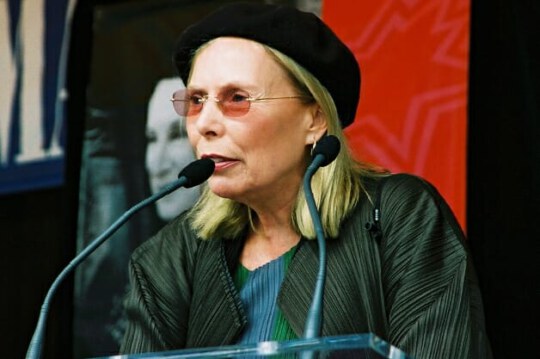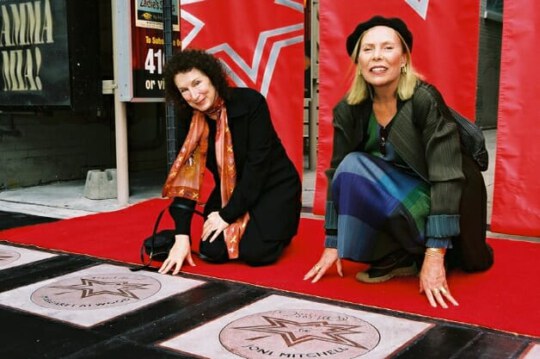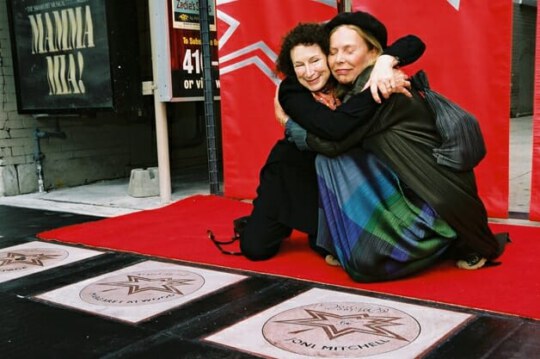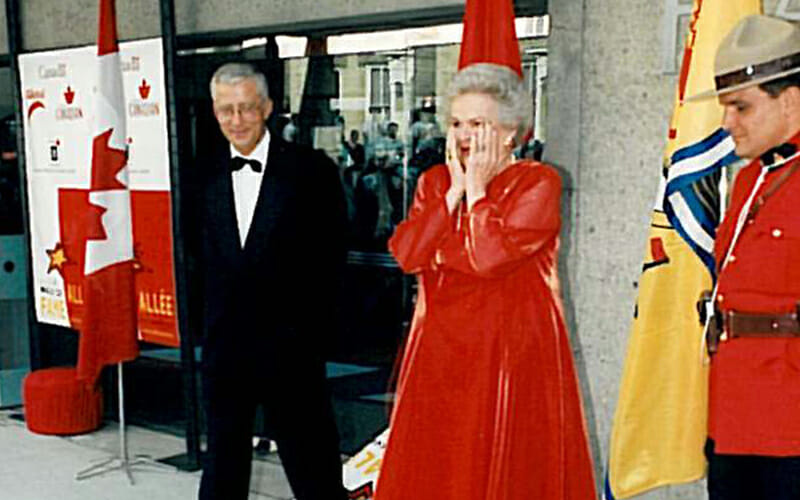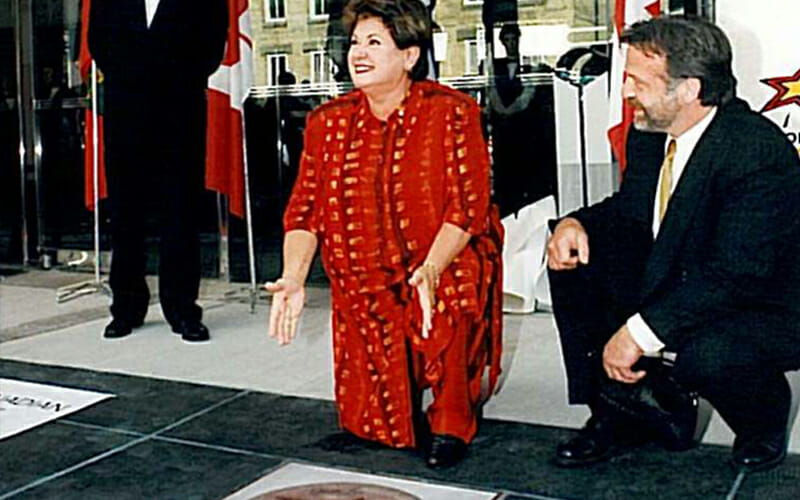From the incandescent purity of her 1960s paeans to love and peace to the smoky world-weariness of her recent collection of classic ballads, Both Sides Now, Mitchell has defied classification for nearly four decades.
Roberta Joan Anderson discovered her musical gifts in a rather unusual way. Hospitalized with polio at age nine, she filled her long days of convalescence by singing for the other patients and taught herself to play guitar with the help of an instruction book by American folksinger and political activist Pete Seeger.
After attending art college in Calgary and becoming a fixture of the local folk music scene, Mitchell travelled to Toronto where, in 1965, she wed folk singer Chuck Mitchell. The marriage didn’t stick, but the new last name did. Moving to New York in 1967, Mitchell landed a recording contract with Reprise Records and an offer from David Crosby to produce her self-titled debut album. Despite a growing cult following, Mitchell earned her greatest fame during the late ’60s as a songwriter, thanks in large part to Judy Collins’ hit version of “Both Sides Now” and Tom Rush’s superb interpretation of “The Circle Game”.
Throughout the 1970s and ’80s, Mitchell stayed several steps ahead of music trends by experimenting with world music, jazz fusion and synthesizer-driven electronics. In 1991, she returned to her acoustic roots with the spare, haunting Night Ride Home, followed in 1994 by the acclaimed Turbulent Indigo. At age 56, Mitchell took another new, dynamic tack with Both Sides Now, a project inspired by her participation in a big-band benefit organized by rock performer Don Henley, former frontman of the Eagles.




